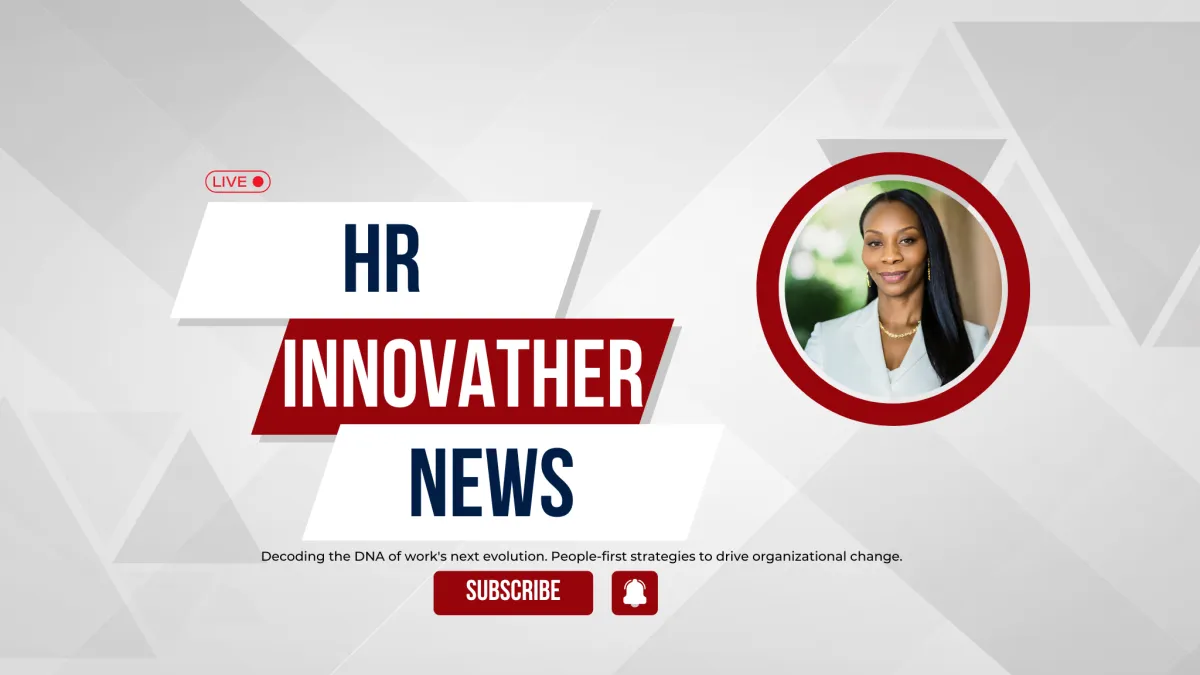

From Fax Machines to AI: How Technology is Revolutionizing Recruiting
Recruiting Like It’s 2015: How AI is Reshaping the Talent Acquisition Landscape
While Marty McFly’s vision of 2015 may not have aligned perfectly with our reality, the transformation within the recruiting profession over the past 30 years feels equally futuristic. As Erin Scruggs, LinkedIn’s VP of Talent Acquisition, shared during a keynote at LinkedIn’s Talent Connect Summit, the evolution of recruiting has been nothing short of revolutionary.
A Look Back: Recruiting in the Mid-’90s
Scruggs began her career in 1995 at a Baltimore-based staffing agency, focused primarily on placing contractors in government roles. Back then, recruiting was all about the thrill of the hunt—finding names and contact details for candidates who fit specific job criteria.
She recalled a particularly challenging placement: a nuclear reactor mechanic with experience working on a Nimitz-class aircraft carrier. Without today’s digital tools, Scruggs relied on time-intensive research, including calling the Navy’s personnel department for leads. After 10 business days and countless phone calls, she found nine qualified candidates and successfully filled the role.
Recruiting Today: Powered by AI
Fast forward to today, and that same search can yield over 300 qualified candidates in seconds using LinkedIn’s AI-powered tools. These advancements have transformed recruiting from a repetitive, transactional role into a strategic, data-driven profession.
“It’s such a smart, strategic profession now,” Scruggs explained. “We’re predicting the future, influencing decisions, and helping organizations think more broadly about talent.” AI has shifted the focus of recruiters from time-consuming administrative tasks to solving complex problems and planning for organizational growth.
The Future of Recruiting with AI
AI’s influence is only growing, and Scruggs is excited about the possibilities it brings to talent acquisition. From predictive analytics to real-time insights, recruiters now have tools that allow them to make more informed decisions.
“There’s so much we can do with data insights that we currently lack the capacity for,” she said. However, privacy concerns remain a significant barrier. As AI evolves, HR leaders will need to develop responsible AI practices to ensure ethical use of data.
Beyond immediate efficiencies, AI is poised to disrupt long-term talent management strategies. Companies are beginning to invest in building robust skills architectures—creating universal taxonomies to better understand and transfer skills across organizations.
“Imagine a universal skills classification where the competencies for a salesperson at Enterprise Rent-a-Car are the same as for one at LinkedIn,” Scruggs suggested. This standardization could enable more seamless career transitions and clearer talent strategies.
Challenges and Opportunities Ahead
While AI offers immense potential, it also raises concerns about the displacement of early-career roles that rely on rote skills. Scruggs emphasized the importance of redefining the college-to-work pipeline, ensuring young professionals gain meaningful opportunities to learn on the job.
Equity also remains at the forefront of talent acquisition. Despite some organizations moving away from diversity and inclusion initiatives, Scruggs affirmed that building diverse teams remains a top priority.
“We’re still very passionately focused on equity—making sure our teams mirror the communities we serve,” she said.
The evolution of recruiting from manual processes to AI-powered strategies marks a significant leap forward. As technology continues to reshape the profession, talent leaders must balance innovation with equity, privacy, and opportunity to ensure a brighter, more inclusive future for the workforce.
Stay Updated
For more insights on the latest trends in HR, recruiting, and DEI, subscribe to HR InnovateHER News. Let’s navigate the future of work together.
Fractional HR to Go: Strategic Leadership On Demand
Seek Ameena Guidance

Are you seeking expert HR guidance to enhance your business's human resources strategy without the commitment of a full-time HR executive hire? Need a seasoned Fractional HR Consultant to provide strategic insights or support your HR initiatives? Look no further than our Fractional HR Consulting and HR Leadership Support service!
Tailored for well-funded startups, non profits and medium to large organizations, our Fractional HR service offers the strategic insight and experience of an external HR executive, injecting vitality into your HR initiatives.
Ameena's Unique Approach:
Unlike traditional consulting firms, our Fractional HR service focuses on delivering unbiased, expert advice tailored to your organization's best interests. With extensive experience in HR leadership, Ameena excels in collaborating with your existing teams to bridge gaps, unify efforts, and drive toward a shared vision for HR success.
Ameena's Promise:
Unlike traditional consulting firms, our Fractional HR service focuses on delivering unbiased, expert advice tailored to your organization's best interests. With extensive experience in HR leadership, Ameena excels in collaborating with your existing teams to bridge gaps, unify efforts, and drive toward a shared vision for HR success.
Personalization & Discovery:
Each organization is unique, and we believe in personalized solutions. Let's start with a discovery call to explore how our Fractional HR service can meet your organization's specific needs.
Fees:
Fees range from $5,000 to $20,000+ per month, depending on the scope and complexity of services provided.

Benefits
Executive-level Insight:
Access the strategic foresight and expertise of a seasoned HR executive to steer your HR initiatives toward success.
Enjoy top-tier HR leadership customized to your company's needs without the overhead costs of a full-time executive hire.
From refining your HR processes to fostering a positive workplace culture and aligning HR strategies with business objectives, experience comprehensive HR growth under expert guidance.
SERVICES SCOPE

HR Audit
A comprehensive assessment of your HR processes, policies, and practices to identify areas for improvement.

Strategic Alignment
Align HR initiatives with business goals and objectives to drive organizational success.

Change Management Guidance
Assist in managing organizational change effectively, including digital transformation initiatives and cultural shifts.Talent

Acquisition and Development
Develop strategies for attracting, retaining, and developing top talent to support business growth.

Integration & Training
Assist in integrating HR systems and software, as well as providing training and development opportunities to enhance HR competencies within your team.

Brand Culture Development
Cultivate a strong company culture aligned with your brand values to enhance employee engagement and retention.



